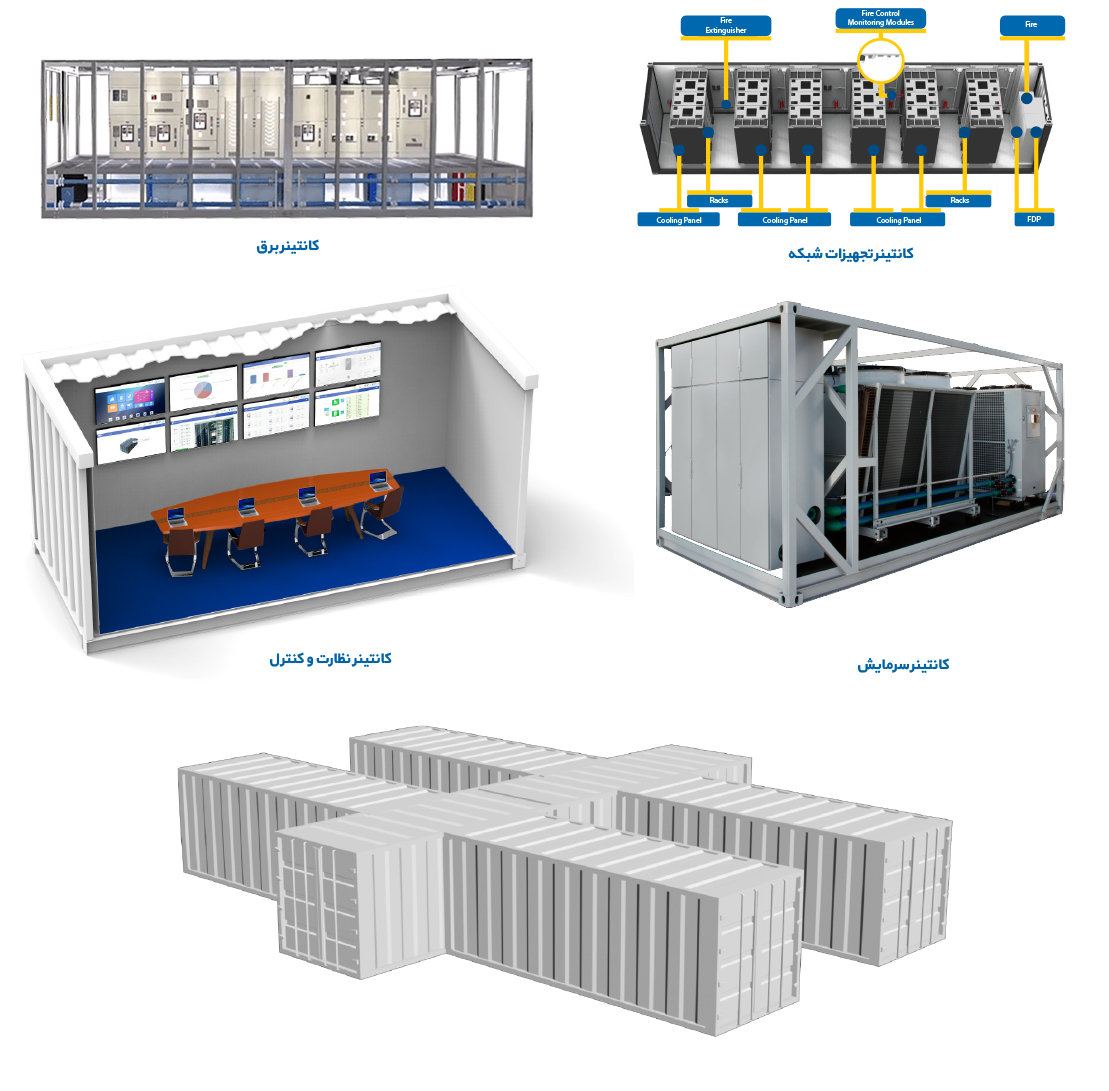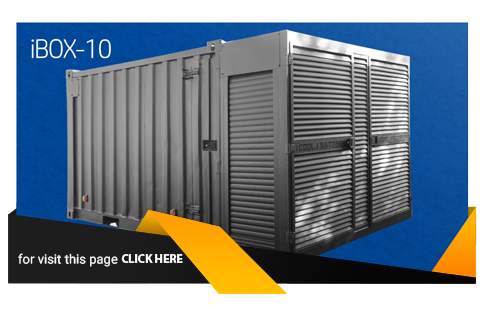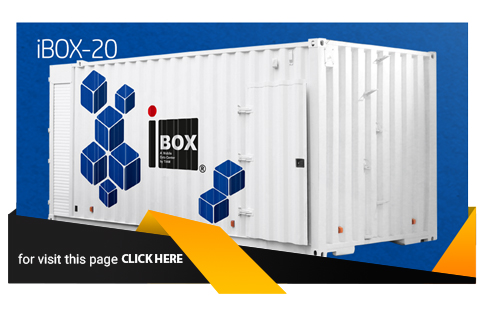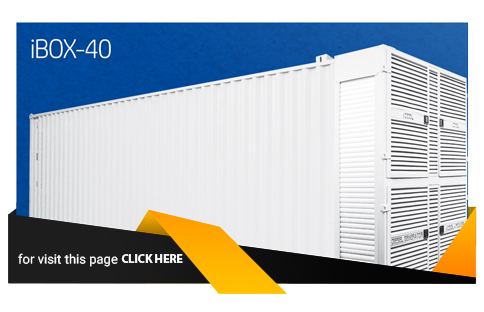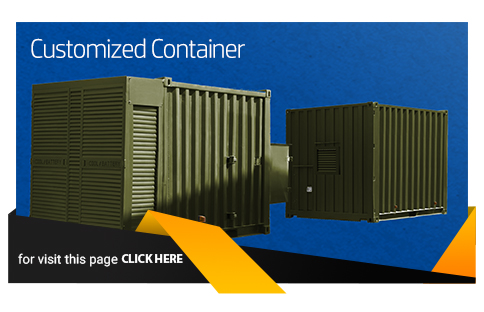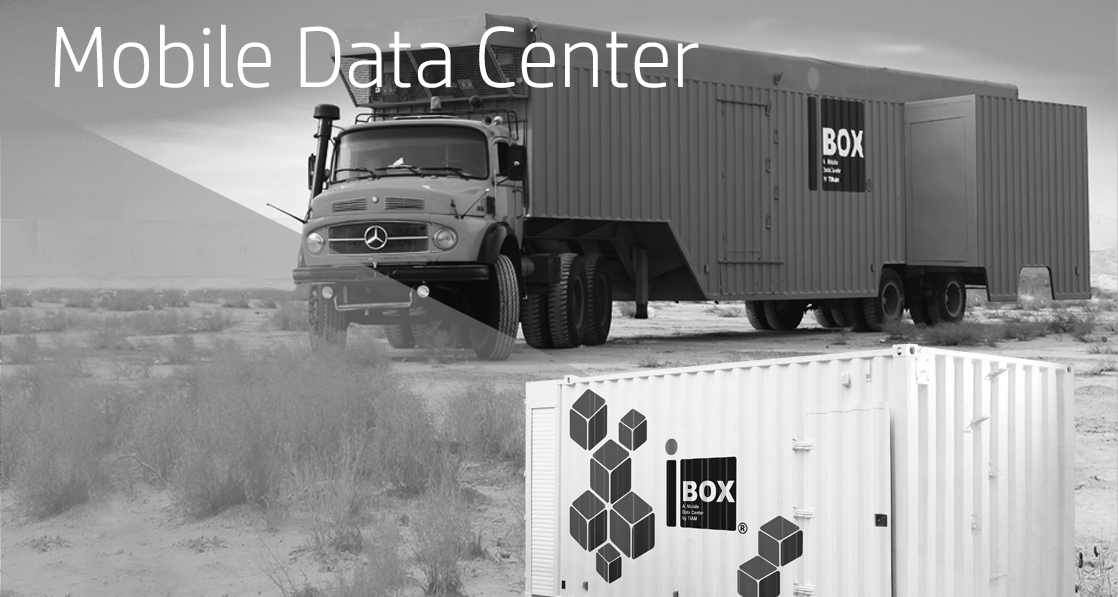
IBOX Mobile Data Center
The needs in the IT community are constantly changing, and the speed of growth in this industry both in terms of hardware and software is much higher than other industries. As a result, in order to meet these needs, it must be synchronized with technological change. A major part of the concerns of IT experts and managers relates to space constraints in the data center and the amount of capital and operating costs as well as maintenance associated with it. Development of mobile data center can provide a response to a wide range of problems in the construction and launch time of the data center.
The Containerized Data Center (CDC) is a set of infrastructure and equipment that is part of the Mobile Data Center (MDC), sometimes called the "Mobile Data Center." This type of data center stores the data of an organization within a container and can be used to meet needs such as lack of physical space, constraints and high costs of building a fixed data center, the speed of launch, the ability to move in the lowest Time and many other needs.
Because these products are customized according to the needs of the employer, customization requires several meetings, needs assessment, and design, so ordering with foreign companies is costly, difficult and in some cases impossible.
The company is committed to developing the country's IT industry and helping to overcome shortcomings in the market, and released Mobile data center with the brand of iBOX by using up-to-date, advanced, fast and affordable, and in complying with EN / IEC 60529 -2004 with IP-56. This section describes the mobile data center and the capabilities of this company's products.
iBOX Mobile Data Center (Mobile Data Center)
The Containerized Data Center (CDC) is a collection of infrastructure and equipment that is considered as a subset of Mobile Data Center (MDC). This type of data center is used to store the data of an organization in a controlled environment and is embedded within a standard container. The main purpose of producing and delivering such a product is to enable the rapid installation of the data center as well as the ability to move it.
Mobile Data Center is a portable solution for data center implementation. This is an alternative to the fixed data center, and can be set up at any location that requires the deployment of a portable data center.
A fixed data center consists of several basic components, including physical arrangements, racks, control rooms (NOCs), power grids, fire alarms, cooling, security, and monitoring systems, however in the mobile data center as a new design approach, all the main constituent components are identified as distinct modules.
Mobile Data Center consists of two main types. The common type of Mobile Data Center is known as the Container Data Center or Portable Mobile Data Center, which includes data center equipment (servers, storage and equipment) inside a standard container. Another type of mobile data center is a set of containers, each containing part of the required modules and will be installed according to the required volume at the desired location.
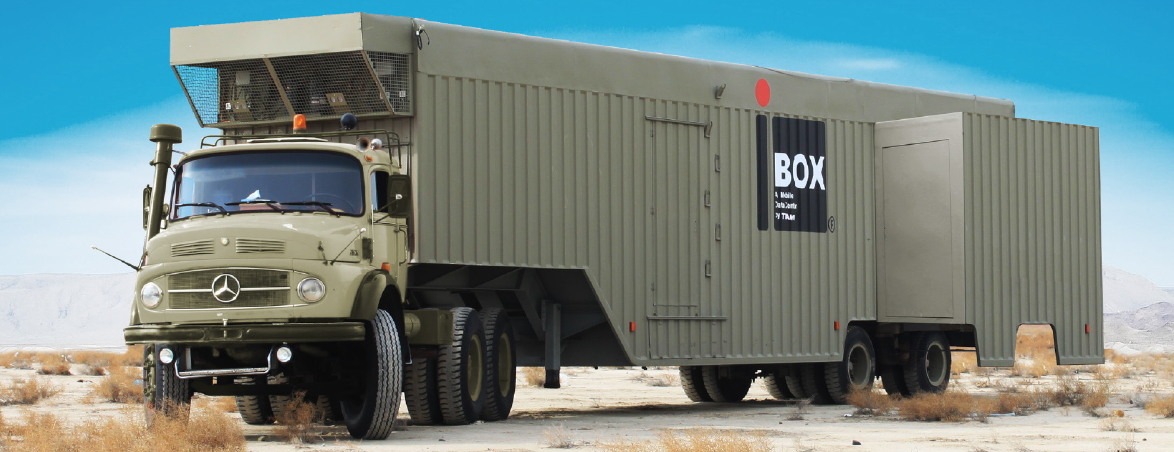
Important Data Center modules include the following:
- Rack and Communications module
- Control and monitoring module
- Cooling module
- Power Module
Reasons to build a mobile data center
- Lack of physical space
- Planning for business continuity
- Building constraints to establish a fixed data center
- Need to set up a data center in the shortest time
- Ability to quickly transfer data center in force-majeure situations

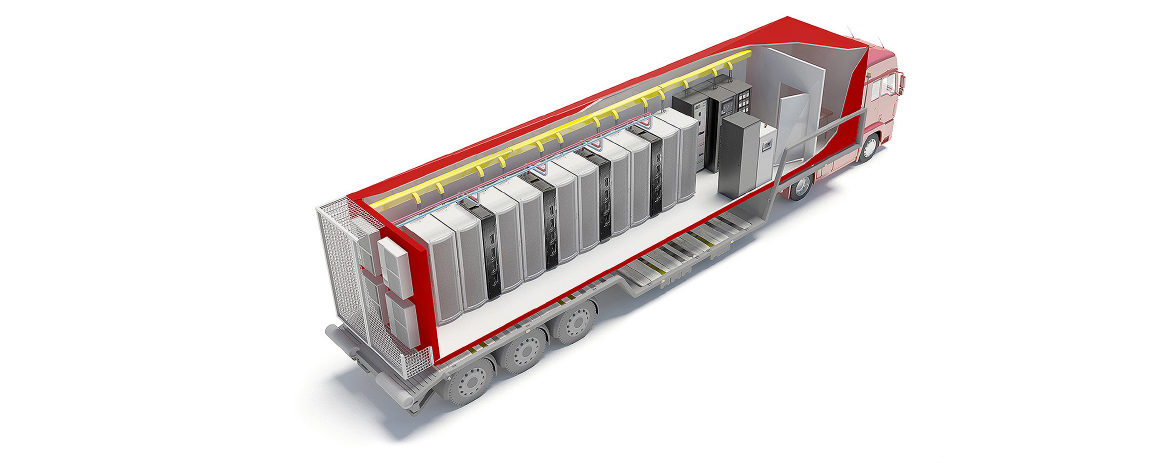
iBOX
The iBOX solution consists of all components of the physical infrastructure of the data center in a container. With respect to benefits of this solution, Government agencies (electricity, water, gas, oil, etc.), banks, research centers, municipalities,crisis management centers, and etc., can satisfy their processing and Storage needs. Also, in the event of unexpected accidents such as war, earthquakes, etc., the strategy can minimize the risk of losing information and time of non-delivery of services. The company, using its technical capabilities and domestic experts, to design and manufactur this product in accordance with EN / IEC 60529-2004 with IP-56, and received the IEC 60529 certification for the product.
Modular Structure
It includes the main parts of the data center, such as the server room, the monitoring room and the mechanical-electrical rooms, and, depending on the type of user and the number of racks, the change in the layout and the size of these spaces is possible.
Expandability
If one need to increase storage and processing resources by adding any equipment, you can easily provide the physical infrastructure suitable for the expansion phase.
Portability
In the case of need to change the container's location, the container can easily be transported to hard-to-reach (harsh) places, which is done by a trailer or helicopter, and in the new place, services required by the employer or the staff in Time of crisis, are reachable with the lowest possible down time
Facility
The solutions required in each of the electrical, utility and telecommunication units, including power distribution panels, fire alarm systems, UPS, intelligent management systems, data communications, electricity, telecommunications, physical security and other standard parts of the TIA- 942 can be integrated within the iBOX
Affordable (Cost Affordable)
Given the significant decrease in construction costs, the Mobile Data Center solution offers an economical solution compared to the fixed data center. The mobile data center has segmented, expandable, and portable features.
Rapid implementation and preparation of a suitable platform for decision-making and in-time guidance in critical situations will prevent financial, physical and time-wasting damages.
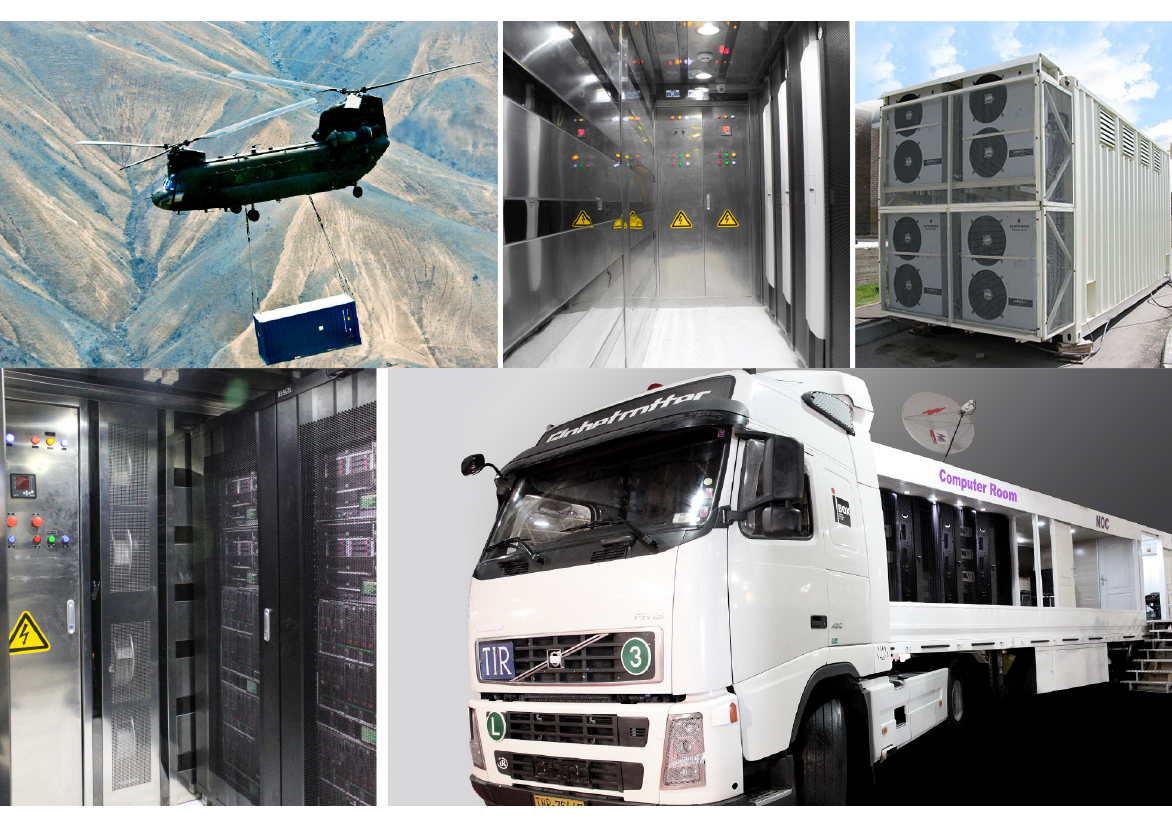
Advantages of iBOX mobile data center relative to fixed data center
More than 50% of the costs and time of construction and operation of a data center consumes during the provision and construction of its infrastructure equipment.
The Mobile Data Center reduces the cost of creating and operating a data center in comparison to the fixed data center, and has many benefits, such as easy to move and install, expandability and usability in a variety of environments. The fixed data center is usually constructed with building materials and the following are some of the benefits of Mobile Data Center.
Reduce initial investment
In choosing the building of a data center and its other infrastructure systems, the future development of the data center should be considered and predicted. Therefore, the initial investment cost will increase, and because of rapid technological changes and the need to adapt to them, this initial investment is hard to justify. The mobile solution is the intelligent solution to reduce the cost of initial capital and to meet the technological needs and rapid changes in the field of information technology.
Quick Launch
In the implementation of a fixed data center, the employer is involved in the construction and installation process of the equipment in their places, and he needs to have direct management and coordination of different contractors for different infrastructures (which runs step by step at the employer's premises), while the conflicts during the construction process of the Mobile data is minimized.
As a standard engineering solution, the data center module is easily built in the factory and the only remaining process is to launch it on the site. The facilities for making the mobile data center at the factory site are much better and more accessible than the site, resulting in a significantly lower set-up cost.
Energy efficiency
In the mobile solution, space is used effectively and allows for accurate airflow management. Therefore, the effectiveness of energy use in these modules is greatly improved.
Efficient management
Undoubtedly, the management of a matched and mobile collection is much easier than an unmatched and widespread collection, and this is the inherent advantage of the mobile data center.
Barber speed
The mobile data center solution can unimaginably speed up the deployment of infrastructure and infrastructure equipment in the data center.
Saving time
The time to create a fixed data center from the initial design to the launch is typically time consuming. The speed of implementation and construction in a business is an essential element and its implementation time is very important. The Providing the equipment and installation of the data center in the shortest possible time are the goal of the company.
The key features of this company's mobile data center are:
- Integrating all physical infrastructure equipment (such as rack, network communication systems, cooling system, power distribution system, physical security systems, monitoring and management systems, etc.) in a container in a single container or in multiple containers in different dimensions.
- Connect to the power distribution network and the data network as Plug in.
- Using a variety of cooling solutions such as In-Rack, In-Room, In-Row and Side Air Flow or SAF based on customer order.
- The use of various types of high-thermal insulation, resistant to corrosion and possible application in different weather conditions.
- Possibility to deploy in closed and open spaces.
- Ability to design and manufacture in different sizes (standard).
- Possibility to deploy2 to14 racks based on the order of the employer in each container and more in a set of containers.
- Possibility to deploy active data center equipment with input power range from 20 to 140 kilowatts
- Ability to stablish different levels of access based on valid universal standards such as ANSI /BICSI-002 and ANSI /TIA-942
- Ability to customize the technical specifications of the product (cooling technology, production and distribution system, fire detection and fire extinguishing system, etc.) on request of the employer
Physical infrastructure of a mobile data center
- Telecommunication equipment
- Infrastructure for computer and telecommunication networks
- Computer room cooling system
- Fire extinguishing system
- Access control system
- ventilation system for internal space
- Control and monitoring system (DCIM)
- Wireless communications, satellite communications and telecommunication links to communicate with the required centers
- UPS
- Generator
Applications of Mobile iBox Data Center
- Containers for command and control centers
- Urban crisis (social, political, natural, etc.)
- Data center support containers for organizations, banks and various organs and armed forces
- City Traffic Containers for Municipalities, City Council and etc
- A server room or temporary data center for semi-built and industrial projects, such as the construction of a dam, refinery, power plant, petrochemical and etc
Container for Command and Control
If there is a problem in the command and control room of the organization, or if this room fails (especially in special circumstances and in crisis), an alternative is needed to establish, manage and direct communications among subscale organizations and also, communication and coordination with other centers throughout the region and the country.
Given the particular circumstances of the crisis, the need for quick access to information, its aggregation and rapid and binding decision making, the use of mobile command containers with the following spaces and in accordance with the ISO 1C and ISO 1CC standards is essential.
Command and Control Container, have the ability to equip with all equipment for the establishment of a variety of communications such as wireless, landline, mobile phone, satellite, audio, image and data appropriate to the type of container.
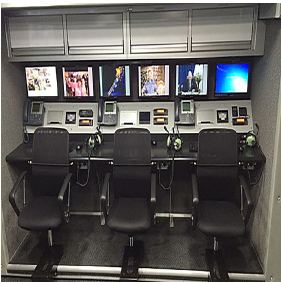
VIP Command and Control Room
This space is designed to accommodate senior managers, commanders and advisors. In this space, with the deployment of communication equipment, it is possible to make decisions and control using the C4I system (command, control, telecommunications, computer and military information).
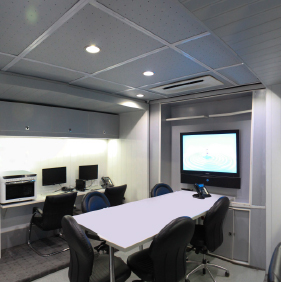
Telecommunication and monitoring room
This space is equipped with a variety of telecommunication and communications equipment with the aim of exchanging information, and specialists are deployed there to investigate and analyze information in this space. The layout of this space is designed in such a way that it is possible to add a variety of telecommunication and communication equipment, appropriate to the needs of each organization.
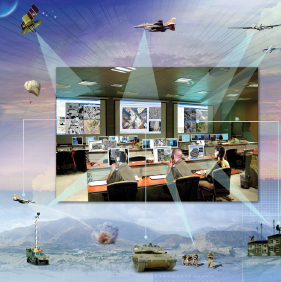
Computer room
This space is designed to hold racks, computer equipment, and protect secrets and secretive information in accordance with the principles of passive defense. In this space, at least 168 units of space are provided for the installation of a variety of processing devices, telecommunication and communication equipment Also the power distribution panel is installed in this space. All of computing and telecommunication systems are maintained in this space. These systems utilize the latest iCOOL cooling equipment, tailored to specific container conditions and designed according to world-class standards.
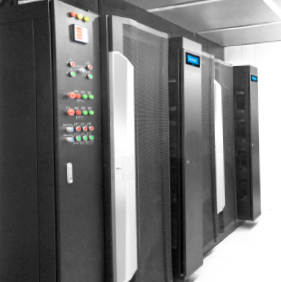
Rest room
This space has been designed with the aim of temporary accommodation of personnel, and amenities are embedded in this space.
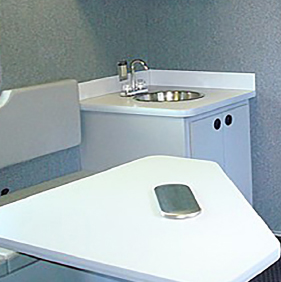
Data Center Data Containers
Based on the analysis of the value of information at major trading company, the name of 93 percent of companies that have lost their data center for at least 10 days is listed on that year bankrupt Companies.
The company has a 10, 20, 40-foot-sized data center container solution that meets ISO / IEC 24762 standards, and proposes disaster recovery Warm Site storage areas to maintain critical enterprise data.
Hot data storage spaces are referred to as data centers that include hardware components, communications connections, electricity, and environmental conditions that are required to provide emergency support operations.
In this type of container, a lot of space is allocated to the rack units to accommodate the active network equipment and data storage.
Suggested spaces for data center backups
- Computer room
- Monitoring room
- Electric Room
iBOX mobile data center types
The standards of ISO 1C and ISO 1CC for containers impose conditions on the dimensions of containers, which leads to variations in the configuration of inside and outside space of the container. In fact, a container can contain all components of a data centers or one can use separate containers for power systems, cooling and server racks.
Mobile Data Center
In this model, all of the physical infrastructure of a data center fits together in a container, which is provided two low-capacity and high-capacity models, based on the needs. The number of rack units in the container and its usage is the basis for calculating container capacity. The use of these containers is for those organizations that the site's mobility is their first priority. This model is made up of containers in standard sizes, and can accommodate 2 to 14 racks, depending on the size of the container.
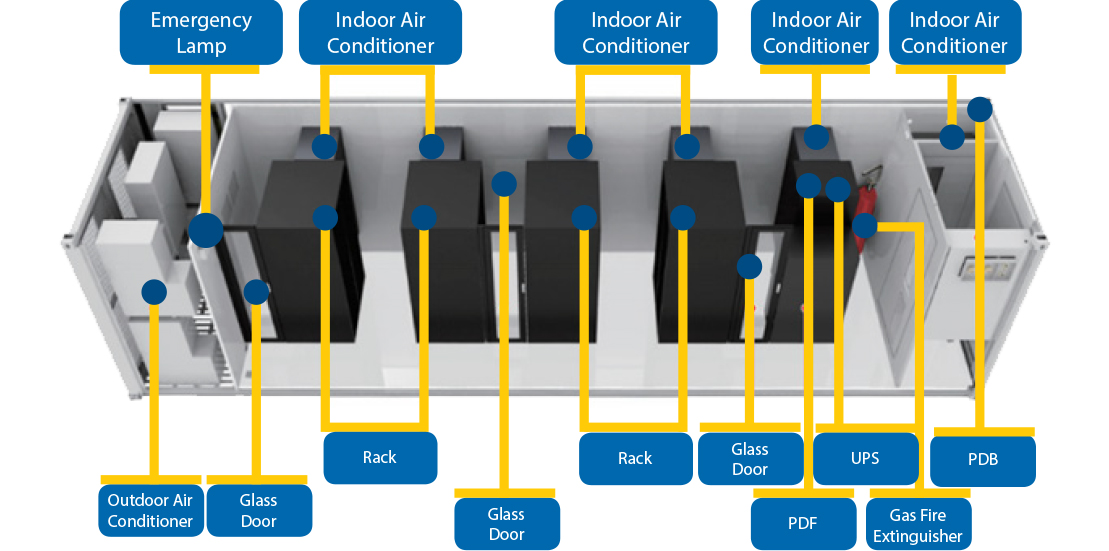
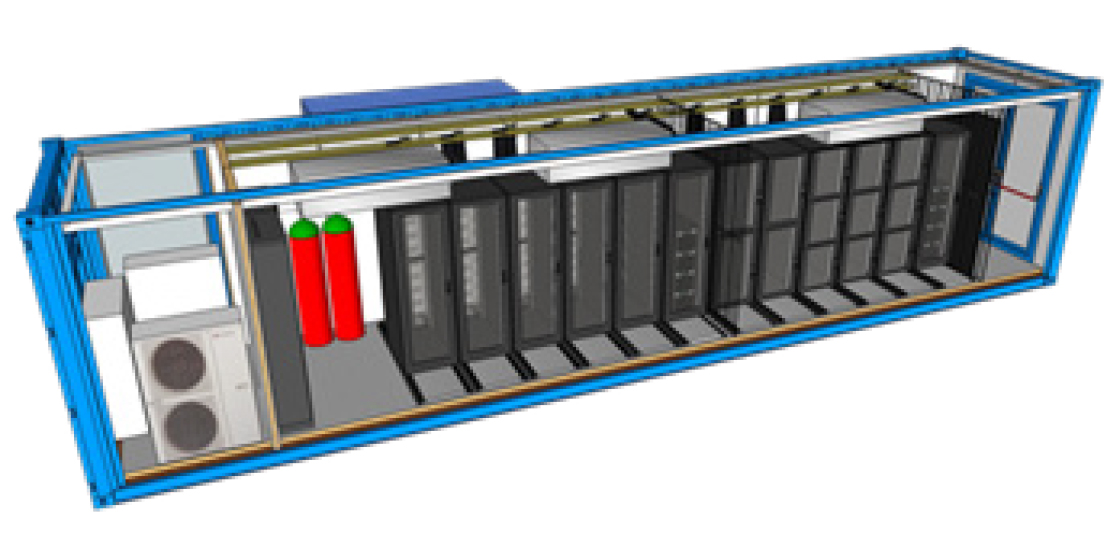
Modular Mobile Data Center
In this model, the physical infrastructure of a data center is aggregated in two or more dependent containers. In this case, each container can contain one or more parts of the infrastructure required by the data center.
- Network equipment Container
- Cooling Container
- Electrical Container
- Monitoring and control Container
This model of containers is used in projects that have space constraints and having a steady backup site is of great importance.
